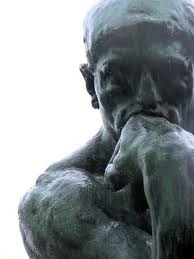
By Steve Beckow, July 28, 2021
(Golden Age of Gaia)
Discrimination, Detachment, and Devotion – Part 1
The higher we go, the better we feel
I’ve been putting off writing this article for some time but I now feel the time has arrived.
There’s such chaos outside that I need to clarify for myself my basic values, to remind myself what course I want to steer.
To do that, I’d like to describe a spiritual path that derives from Hinduism. I follow this path myself and consider it to be very effective.
I’ve said that the basic spiritual movement is turning from the world to God. That is, turning from the world outside to the God inside.
We turn from the distractions of life to the contemplation of the Divine to accomplish the purpose of life – Self-Realization. (1)
This path covers the same ground as that statement but in much more detail. Put in its briefest form it is:
Discriminate between the Real and the unreal; detach from the unreal; and devote yourself to the Real.
I’ve followed statements of it by Sri Krishna, Sri Shankara and Paramahansa Ramakrishna primarily. Here’s Sri Shankara stating it:
“He alone may be considered qualified to seek Brahman [God] who has discrimination, whose mind is turned away from all enjoyments [i.e., detachment], who possesses tranquillity and the kindred virtues, and who feels a longing for liberation [devotion].” (2)
“If discrimination and dispassion are practiced to the exclusion of everything else, the mind will become pure and move toward liberation. Therefore the wise man who seeks liberation must develop both these qualities within himself.” (3)
“Seek earnestly for liberation [devotion], and your lust for sense-objects will be rooted out [detachment]. Practice detachment toward all actions. Have faith in the Reality [discrimination]. Devote yourself to the practice of spiritual disciplines, such as hearing the word of Brahman, reasoning and meditating upon it. Thus the mind will be freed from the evil of rajas [busyness; i.e., a busy mind].” (4)
And here’s Sri Ramakrishna:
“The gist of the whole thing is that one must develop passionate yearning for God [devotion] and practise discrimination and renunciation [detachment].” (5)
“By meditating on God in solitude the mind acquires knowledge [discrimination], dispassion [detachment], and devotion.” (6)
This path gets a bad rep in western society where creative expression is the dominant modality: Let it all hang out. Cool, man, cool.
But, if you think about it for a moment, how else are we going to realize God than if we set other things aside to do it? Whatever we give our attention to is what grows, expands, and manifests.
Critics of this path have often held a basic misconception. They think that its followers shun possessions and experiences, etc.
This path does not require you to give up possessions or experiences. It’s the attachment to them that needs to be let go of.
Jesus said, where your treasure is, there will your heart be also. I think we’d find that very few of our hearts are really on God much of the time, if we were honest about it. (Mine is not, much of the day, more’s the pity.)
Our hearts are more on survival, looking good, catching that man/woman, having enough money, and so on. We’re attached to the world and, as long as we are, we have no attention on the God we want to realize if we wish to fulfill the purpose of life.
And we don’t have to. We can wander in the world as long as we like. But heaven awaits us.
Starting tomorrow, let’s have a commonsensical look at these three elements – an alternative “Life in 3D.”
(To be continued tomorrow.)
Footnotes
(1) See The Purpose of Life is Enlightenment at https://gaog.wpengine.com/wp-content/uploads/2011/08/Purpose-of-Life-is-Enlightenment.pdf and Back to the Basics: Introductory Essays to a Cross-Cultural Spirituality at https://goldenageofgaia.com/wp-content/uploads/2021/01/Back-to-the-Basics-R2-Cross-Cultural-Spirituality.pages.pdf
(2) Shankara in Swami Prabhavananda and Christopher lsherwood, Shankara’s Crest-Jewel of Discrimination. Hollywood: Vedanta Press, 1975; c1947, 35.
(3) Ibid., 60-1.
(4) Ibid., 62.
(5) Paramahansa Ramakrishna in Swami Nikhilananda, trans., The Gospel of Sri Ramakrishna. New York: Ramakrishna-Vivekananda Center, 1978; c1942, 183.
(6) Ibid., 82.

By Steve Beckow, July 29, 2021
(Golden Age of Gaia)
Discrimination, Detachment, and Devotion – Part 2
(Continued from Part 1, yesterday.)
(1) Discriminate between the Real and the unreal.
As was revealed to me in a vision on Feb. 13, 1987, the purpose of life is for us to realize who we are. (1) Before I turn to discrimination proper, I’d like to look at life’s purpose.
If we only want to get it intellectually, rather than realize it, I can tell you now. You’re God. Did that make a great deal of difference?
Probably not, because it has to be experienced and realized as the Truth before it has a liberating, transforming effect on us.
The reason God created things this way is so that the All could have an experience of itself. (2)
Each time one of us realizes itself as God, God meets God. And for that meeting was everything you see and don’t see, universes without end, created.
The higher we climb, the more enjoyable life is. And the most enjoyment of all comes when we either merge with God as the little star in my vision did or stand revealed as God. Our joy is complete.
It isn’t as if this game of blind man’s buff is in any way harmful to us, except if you think of being consigned to the old Third Dimension as cruel and unusual punishment! Quite the contrary.
I’ve had brief experiences of states as high as ecstacy and exaltation and they make the wait worthwhile! Just when you thought it couldn’t get any better, there’s a higher state.
***
Now turning to discrimination, Sri Ramakrishna defined it as:
“Discrimination is the knowledge of what is real and what is unreal. It is the realization that God alone is the real and eternal Substance, and that all else is unreal, transitory, impermanent.” (3)
Krishna explained how it is we lose our discrimination and what that costs us:
“Thinking about sense-objects
Will attach you to sense-objects;
Grow attached, and you become addicted;
Thwart your addiction, it turns to anger;
Be angry, and you confuse the mind;
Confuse your mind, you forget the lesson of experience;
Forget experience, you lose discrimination;
Lose discrimination, and you miss life’s only purpose.” (5)
Miss life’s only purpose? To sharpen our powers of discernment so that we can discern the Real from the unreal when the time comes.
When we say “turn from the world to God,” Krishna has just described the process of being attached to the objects and pleasures of the world and what arises from it. It’s this whole process that we want to detach from.
Our attachment to sense-objects (money, sex, status symbols, etc.) sets up longing, confusion, frustration, and anger, usually when we don’t get what we want. If the mind is confused and noisy, it cannot recognize the Real when the Real presents Itself.
Whatever the mind is attracted to, it makes real, right, and true. Sociologists call this the self-serving bias.
Once the attachment is no longer there, we wake up to the truth of what we’ve been thinking and doing.
Thus, when we set out on the path to experience and realize the truth of who we are, our first step is to begin to distinguish the Real from the unreal.
***
What’s “Real” refers to the absolute. Let’s start smaller. Let’s start with the here and now, with what’s real to us on this plane of existence.
If, like me, you’re on the awareness path, then we begin to enquire into such things as our moods, our attitudes, our action – what of them, what about them is real and what’s not? Byron Katie’s path is based on asking this question. (6)
We keep our attention on ourselves. What’s really happening here? What’s really going on? What’s driving me? Where does it come from?
Alternatively, you could follow Sri Ramana’s Self-enquiry path and ask who is doing this? Who is feeling this? (7)
We find that, in looking at ourselves, we go deeper and deeper into what we later discover to be the heart, leaving behind the superficial and the unreal.
In this practice the basic premise is that the truth will set you free. The big “T” Truth will set us free from separation/individuality. The small “t” truth will set us free from our upsets, conditions, or vasanas (core issue).
In the course of discerning more and more of what’s real, we find our tastes changing. We’re no longer drawn to some things and more drawn to others. We’re probably ready for step 2.
(To be continued tomorrow.)
Footnotes
(1) See “The Purpose of Life is Enlightenment – Ch. 13 – Epilogue,” August 13, 2011, at https://goldenageofgaia.com/2011/08/13/the-purpose-of-life-is-enlightenment-ch-13-epilogue/
(2) “We do not want anything capitalized.” (Archangel Michael in a personal reading with Steve Beckow through Linda Dillon, Aug. 12, 2016.)
(3) Paramahansa Ramakrishna in Swami Nikhilananda, trans., The Gospel of Sri Ramakrishna. New York: Ramakrishna-Vivekananda Center, 1978; c1942, 140.
(4) Sri Krishna in Swami Prabhavananda and Christopher Isherwood, trans., Bhagavad-Gita. The Song of God. New York and Scarborough: New American Library, 1972; c1944, 71.
(5) See Byron Katie, Loving What Is: Four Questions that can Change Your Life. NY: Three Rivers Press, 2002.
(6) See for instance Who am I? The Teachings of Bhagavan Sri Ramana Maharshi. Tiruvannamalai: Sri Ramanashram, 1990, 31 pages.
For more of his teachings, see: Arthur Osborne, ed., The Collected Works of Ramana Maharshi. http://www.ramana-maharshi.org. Downloaded 10 Sept. 2005 [it contains Who am I?] and Sri Ramana Maharshi, Talks with Sri Ramana Maharshi. Three Volumes in One. Tiruvannamalai: Sri Ramanashram, 2010. Talks between 1935-9.